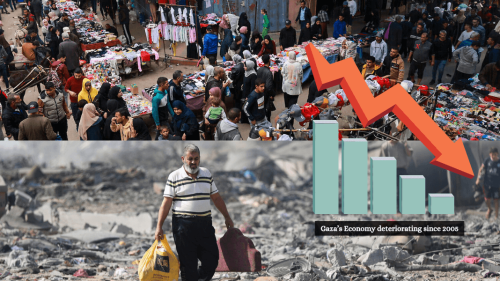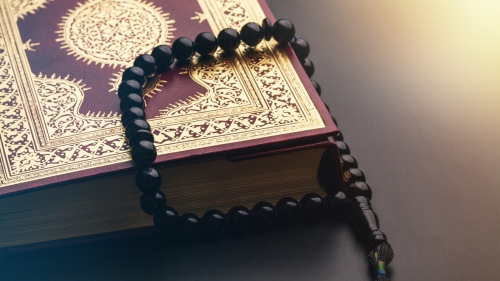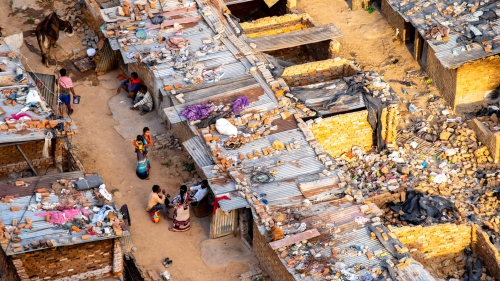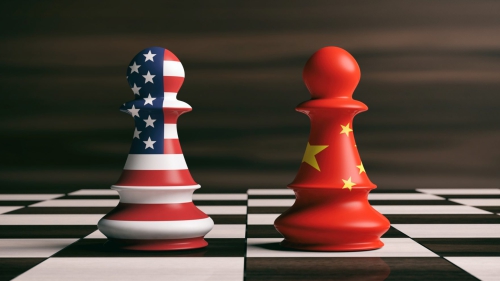A Muslim World Success Story
Living in a world obsessed with sensationalism we have become accustomed to focusing on the negatives. One only needs to look at our daily dosage of news to conclude that newsworthiness is more often than not determined by what has gone wrong. After all, for the most part, if something is going well, it's not worthy of being reported or commented upon - save for the fixed quota of human interest or fluff stories for which space or time is reserved.
As a human with the added burden of meeting weekly deadlines for my columns, I must confess I instinctively look for issues and items in the news to critique, challenge or plain disagree with. After all, it's always easy to win an argument when you make your own straw man to argue with. I thought I would take the time to appreciate the brighter side in today's column.
The Islamic Development Bank (IDB) is currently celebrating its 25th anniversary (according to the Islamic calendar). The celebrations launched earlier this year will climax with the 24th annual meeting of the IDB Board of Governors in Jeddah, Saudi Arabia on November 2 and 3 of this year. The meeting is to be attended by prominent Islamic personalities as well as ministers of finance, economy and planning from the fifty-three member nations.
The IDB gives us a lot to celebrate.
The seeds for the establishment of the bank were laid in the 1960's by the late Saudi King, Faisal ibn Abdulaziz. The king's calls for a summit conference of Muslim leaders in Rabat, Morocco in 1969 paved the way for the establishment of an institution dedicated to fostering greater inter-governmental cooperation among Muslim states. That institution, the Organization of Islamic Conference (OIC), has a long way to go with its many initiatives. Fortunately, the IDB stands out as a beacon of what can be achieved when a united and mutually beneficial initiative is undertaken.
As acknowledged by its founders, including Mohammed Abalkhail, a former Saudi Arabian minister of finance, the establishment of the IDB was difficult because it was founded on Islamic principles - something untried at the time. But persistence appears to be paying off.
The IDB held its inaugural meeting on July 26, 1975 with subscribed capital of 500 million Islamic Dinars (approximately US $685 million) and 159 project proposals from 19 member states. The authorized capital grew to two billion Islamic Dinars (approximately US $2.74 billion) by 1992. Due to the growing demand for the bank's services the board raised the capital to US $8.4 billion in the summer of 1992. Watch for this to be raised even higher in the near future.
Consider that earlier this year the IDB had contributed financially to well over three thousand projects to the tune of US $22 billion in the 53 member nations and sixty-three communities in non-member states. The dollar amounts are tiny in relation to major international transactions. But is the achievement not worthy of being commended and encouraged? Indeed, a thorough study of the bank's success may help explain why efforts in the other areas -- such as trade between Muslim states and the establishment of an international Islamic news agency -- have not been as successful.
Not only have the bank's projects touched the lives of many in the developing world, they have also touched many of us in the developed world. In my own local community, the IDB came through with finances for badly needed equipment for the local Islamic school when donors were financially drained by the dozens of fundraising dinners held to pay for the mosque. Anyone going for Hajj also benefits from the efforts of the IDB, which in cooperation with the Saudi Government, has since 1983 ensured that sacrificial meat is packaged, frozen and distributed to the poor in Saudi Arabia, other member countries and even some non-member communities. This is definitely an achievement considering that tons of meat spoiled before this system was instituted.
In September of this year, the bank also announced that it would extend loans to private sector investors in member countries. This is clearly a positive development as the financial markets in many member states could use a little shove to keep the momentum. Moreover, the IDB subsidiary operating as the Islamic Corporation for Insurance of Investment & Export Credit is trying to develop creative ways to insure investment and export financing within the confines of Islamic law.
The bank's role in Islamic finance research and education is also noteworthy. The Islamic Research and Training Institute is well on its way to becoming a leading force in the growing area of Islamic finance and banking. The IDB has been a consistent promoter of Islamic economics since its inception. In fact, it is jointly sponsoring the Fourth International Conference on Islamic Economics and Banking entitled "Islamic Finance: Challenges and Opportunities in the 21st Century" to be held at Loughborough University during August 13-15, 2000.
The IDB's scholarship program has benefited close to 5000 students around the world. One criticism that can be leveled at the scholarship program is its insistence on science, engineering and technology. Some may claim that is appropriate in the less developed world, but there is a need to reevaluate and reassess this even in these countries. I know of a number of brilliant students who applied for IDB scholarships and where turned down because they were pursuing something other than science and technology. Science and engineering are fine, but we are not lacking in such professions - at least not in North America. Journalism, mass communication, social work, public policy, television production etc. must be encouraged.
Hopefully the issues of private sector funding, increased capital and reevaluating the scholarship program will be part of the agenda at the upcoming Jeddah meeting.
It's about time we patted the Muslim world on the back for this success story. Congratulations and may the next twenty-five years bring you - and us - more success.
Faisal Kutty is a Toronto lawyer and writer and is also a columnist for the Washington Report On Middle East Affairs

















